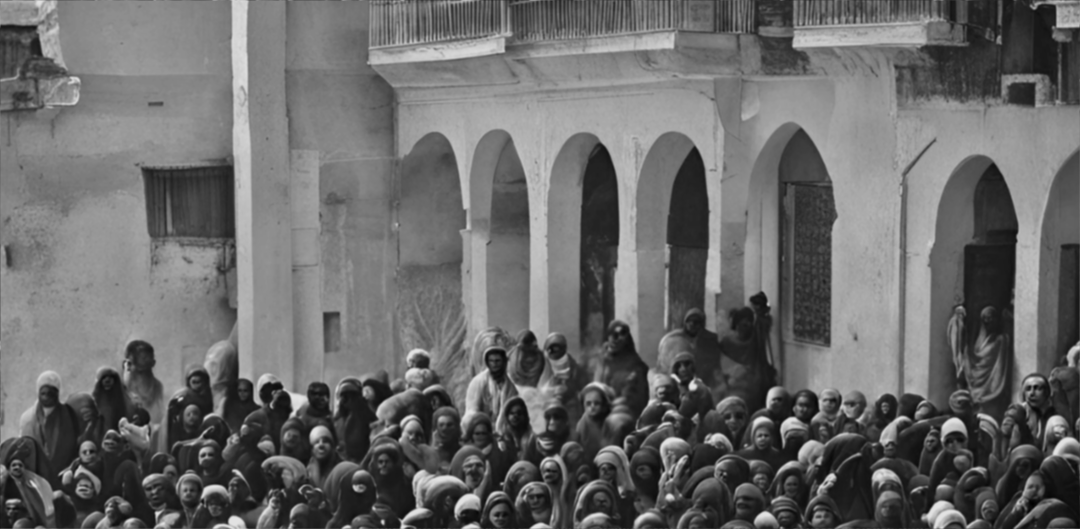The sight of Al-Qaeda’s flag flying over Mali’s Bamako International Airport after the Jama’at Nusrat al-Islam wal-Muslimin (JNIM) attack in late September highlights a stark reality: in Africa, the violence of militant Islamist groups has almost tripled over the last decade, making the continent one of the world’s most impacted by terrorism. While Burkina Faso loses nearly half of its territory to militant groups and Mali and Niger experience daily attacks, an authoritarian turn has gripped the region, with military juntas now ruling in Mali under Assimi Goïta, in Burkina Faso under Ibrahim Traoré and in Niger under Abdourahamane Tchiani. It becomes clear that strictly militaristic counterterrorism approaches have failed. While militant Islamist groups are growing their operational capabilities, governments cannot match such levels of sheer force, resulting in a never-ending cycle of clashes that only fuels ongoing conflicts. The rising violence and deteriorating security landscape in Africa call for the exploration of alternative instruments in dealing with militant Islamist violence – negotiations.
The project “NIJAR – Negotiating with Islamist and jihadi armed groups: practices, discourses and mechanisms across Asia and Africa” was launched in December 2023. This 24-month research initiative, led by Francesco Strazzari, and supported by postdoctoral researchers Laura Berlingozzi and Marta Cavallaro, investigates negotiation efforts with militant Islamist groups. Financed by the Italian Ministry of University and Research under the Research projects of relevant national interest (PRIN), with the support of the Next Generation EU Fund, NIJAR brings together two research units, the Sant’Anna School of Advanced Studies (Pisa, Italy) and the Catholic University of the Sacred Heart (Milan, Italy). NIJAR seeks to understand the key factors that enable or impede negotiations with militant Islamist and jihadi groups and how these factors differ by context and actor. To do so, the project maps and analyses key cases of negotiation initiatives that occurred over the past 20 years between militant Islamist groups and states across Asia and Africa, with a focus on Mali, Niger, Burkina Faso, Mauritania, Somalia, Lebanon and Syria.
NIJAR addresses a significant gap in the scholarly literature on the growing phenomenon of dialogue with jihadist groups, with one of the most prominent examples being the US-Taliban Doha peace agreement of 2020. Although an increasing number of publications now question the post-9/11 “no negotiation” and “no concession” doctrines, the tendency is still to focus on a few single case studies, often using a-critical game theoretic, econometrical, and statistical models. Dominant narratives also persist in framing jihadist groups as “absolutist terrorists” or “true believers”, rather than positioning them as political actors who shape and are shaped by the social, economic, and political environments surrounding them. In response, NIJAR aims to advance a more coherent research agenda from a critical perspective that acknowledges the existence of practices of dialogue with jihadists and accounts for their broader implications for peace-making beyond militarism. This post presents selected findings from the project’s initial phase, which focused on the mapping of key cases of dialogue in the Sahel, as well as the early insights on the possibilities and challenges of dialogue with jihadist groups.
Instances of negotiations in the Sahel
In the Sahel, militant armed groups operate predominantly under the umbrella of the Islamic State West Africa Province (ISWAP) or al-Qaeda affiliated JNIM. Located in the region most impacted by jihadi insurgency, the cases of Mauritania, Mali, Niger and Burkina Faso are critical for examining common and context-specific trends in negotiation efforts. In particular, after the influx of armed fighters in Liptako Gourma region (central Sahel) upon the collapse of the Libyan state in 2011, Mali saw the reignition of the Tuareg rebellion. Organised under the National Movement for the Liberation of Azawad (MNLA), Tuaregs aligned themselves with multiple jihadist groups prompting the spillover and development of militant Islamist activity in the wider Sahel.
The case of Mauritania can be arguably considered the most successful one in the wider Sahel, with the country not being largely affected by jihadi insurgency since 2011. The success is often attributed to Nouakchott's multidimensional deradicalisation strategy, which places emphasis on establishing a religious dialogue with detained jihadists. Between 2009 and 2010, several religious figures, guided by Salafi preacher Mohamed el Hacen Ould Deddew, engaged in dialogue on critical themes such as the legitimacy of violence and jihad. By the end, 47 detainees pledged to lay down their arms and renounce extremism, receiving presidential pardons or sentence reductions. Combined with the policy of the so-called “calculated ambiguity”, where Mauritania condemned the 2013 French-led intervention in Mali and tolerated growing anti-Western sentiments among the preachers, the dialogue efforts built a foundation for halting Islamist insurgency.
In Mali, early instances of dialogue between 2012 and 2015 targeted Ansar al-Din (now integrated into JNIM) and its leader Iyad ag Ghali. One effort was made by the religious institution of the High Islamic Council of Mali (HCIM), led by the Salafist leader Mahmoud Dicko, who travelled to the north of the country to explore prospects for negotiations with the armed factions, particularly with Ansar al-Din. Additional talks were sponsored by Burkina Faso’s then-president Blaise Compaoré, who hosted Ansar al-Din representatives and met personally with ag Ghali, and by Algerian authorities, who received an Ansar al-Din delegation to broker a ceasefire. While these initiatives did not succeed, several analysts believe they helped to fragment Ansar al-Din by drawing moderate members away from the movement. Later, efforts stalled under the no-dialogue approach increasingly promoted by French troops deployed in the country. However, national support for dialogue emerged again during both the 2017 Conference of National Understanding and the 2019 “inclusive national dialogue” for reconciliation. A few other engagement attempts were made. In 2017, Dicko was tasked with leading a good offices mission with several jihadist actors in the north, which was aborted following pressure from the French embassy and troops. In 2020, a second mission saw HCIM act as facilitator of talks between Katiba Macina (now integrated into JNIM) and a local militia group in the Ségou region, leading to a peace agreement in March 2021. In parallel, discussion channels with the Malian army produced a major hostage exchange between Bamako and JNIM in October 2020.
In Niger, under President Mohamed Bazoum (2021 - 2023), negotiations with militant Islamist groups were framed as a crucial component of national counter-terrorism strategy following the Mauritanian model. In 2022, Niamey entered into dialogue with jihadi leaders, releasing several prisoners beforehand. Niamey also facilitated the peace agreement between rival Fulani and Zarma communities, which led to almost immediate socio-economic stabilisation and thus lessening the prospects of jihadi recruitment from the area. In Burkina Faso, the initiative of dialogue with jihadists was mostly carried out by the local communities, given the government’s challenges in controlling the insurgency. Seeking to understand the jihadists’ motivation and willingness to return to the besieged villages, local leaders both in Burkina Faso and Mali engaged in dialogue, resulting in minor blockage lifts. Ouagadougou seemingly softened its stance against dialogue in 2022, calling for a blended strategy encompassing both a militaristic approach and dialogue.
Overall, the cases cited offer some first key reflections on the factors which can hinder or favour dialogue with militant Islamist groups. Firstly, the Mauritanian experience illustrates how dialogue affects and is affected by the wider counter-terrorism agenda and peace-making processes. In particular, Nouakchott’s approach to countering insurgency through a comprehensive deradicalisation strategy, giving more freedoms while limiting military action, provides a valuable example of how jihadi violence can be tamed in the long-term. In turn, resorting to purely militaristic practices and coercive approaches poses a risk of breaching the counterparts’ trust and sending mixed signals of the state’s intentions to engage into dialogue. At the same time, the presence of foreign troops on the ground often reinforced purely militaristic agendas that obstructed dialogue in the region. Assessing negotiation efforts thus requires a broadened scope of analysis, incorporating also external and internal influences such as foreign military forces, civil society, key religious and political elites, public opinion, etc.
Secondly, dialogue dynamics in the Sahel have been significantly affected by intra-factional rivalries amongst jihadists and unstable state leadership. In this context, it proves to be increasingly difficult to identify and select a legitimate spokesperson who would be trusted on both ends and within their camps. Concurrently, the frequent turnover of the leadership in power has not allowed for sustainable long-term negotiation initiatives. As of today, in the context of the subsequent coups in the Sahel which brought military juntas to power in Mali, Burkina Faso and Niger, the predominant approach to dealing with insurgency again shifted to a militaristic one.
Lastly, in Burkina Faso and Mali there has been evidence of violence mitigation stemming from local community-led dialogue efforts. Supported at times by international humanitarian organisations, local community leaders have initiated dialogue, moved by a desire to alleviate the living conditions in the areas exposed to the Islamist insurgency. Although they remain unable to offer meaningful concessions needed to move from everyday survival-oriented agreements to more sustained peace talks, local communities hold the potential to act as a valuable conduit for effective dialogue facilitation with jihadi groups.
Looking ahead
In the context of violent resurgences in the Sahel, purely militaristic approaches have not led to lasting solutions, often fuelling new waves of radicalisation and resentment. The insights from the region point to the fact that dialogue, although complex and often hindered, could be an indispensable alternative to pave the way for new understandings of conflict resolution and peace-making. NIJAR’s deeper empirical analysis will hopefully bring fresh perspectives on the path to stability that challenge current gaps in policy and academic discussions. Stay tuned for more!

